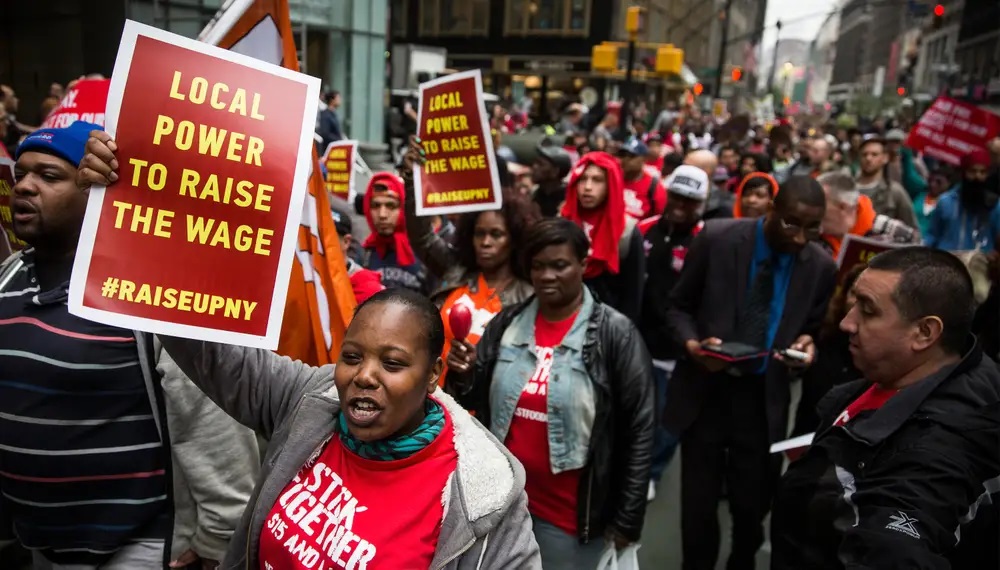Understanding Labor Exploitation: Impact, Vulnerabilities, and Ongoing Challenges

June 8, 2024
This article discusses labor exploitation, highlighting how workers, especially vulnerable groups, can suffer abuse in various forms, impacting them psychologically, physically, emotionally, and financially. It also addresses the lack of awareness of labor rights and the challenges faced by workers without proper contracts or union representation.
When entering a discussion on the exploitation of work, the assumption is generally made that the workers are being unfaired or badly treated in some form or fashion by the employer or management. This assumption is not to be dismissed, as it is consistent with the understanding that labour exploitation is about the abuse of people in the workplace for profit. Added to this, there is the belief that the abuse can be direct and brutal or much less obvious. There is concurrence with the understanding that exploitation can be devastating for victims, who can be impacted psychologically, physically, emotionally and financially.
Very often workers are made to tolerate abuse and suffer in silence. They remain at the mercy of the employer. Those who are considered as the most vulnerable, and in this instance, are identified as unskilled, lowly paid workers and those who are without academic qualifications. There is good reason to believe that many workers live in fear of losing their jobs. The fact that the labour market throws up a state of excess labour is a phenomenon which is seemingly not lost upon employers. Those who manipulate the circumstances stand to be accused of behaviour which borders on being inconsiderate and lends itself to being described as callous and ridiculous.
Workers who are exposed to being exploited tend to fall into the group that has no contract of employment and are part-time, temporary or casual employees. This is not to say that other categories of workers are not impacted. It may be said the workers are victims of their own making, in that many of them are not familiar with their contract of employment, terms and conditions of service and the various relevant pieces of labour legislation. There is the added problem that some workers opt not to be unionised, and as a consequence, fail to avail themselves of trade union representation.
The extension to this problem is the absence of a collective bargaining unit in some workplaces. The problem may be exacerbated by the fact that some employers attempt to deny employees their constitutional and fundamental right to freedom of association and the right to bargain collectively. Where this occurs and is unchallenged, and moreover, in the absence of a trade union recognition agreement, employers may have a sense that they are empowered to carry out their actions; operating under the guise that they are doing so within the law of the land. Without the force of law, it is left basically to a gentlemen’s agreement between the employer and the trade union as the representative of labour, to negotiate on matters of conditions of service and pay.
Trade unions are expected to play an important role in attempting to protect and safeguard the interests and well-being of workers. They are faced with the enormous challenge of living up to this expectation and doing so within an environment where there is a low trade union density. This is coupled with the apparent lack of interest on the part of employees to become a trade union member. With the understanding that trade unions are charged with the responsibility of promoting the decent work agenda, this places workers’ and human rights at the core of what they do. This means that they have an important role to play in ensuring that labour standards are observed, and that forced labour, child labour and discrimination are not practised in the workplace. That responsibility goes further to include undertaking negotiations, engaging in the collective bargaining process, offering representation in labour disputes, promoting democratic principles in the workplace, occupational safety and health standards, and engaging in the process of consultation and dialogue.
The global concern and response to the exploitation of workers has been summarised by IndustriALL Global Union General Secretary Atle Høie: “Human rights due diligence must always be an integral part of our work. We need to hold companies accountable for violations, but we also need to put measures in place to make sure that there are no violations. The time when companies could make profit out of the exploitation of the environment and on the back of their and their suppliers’ workers’ fundamental rights all over the world, has to come to an end.”


